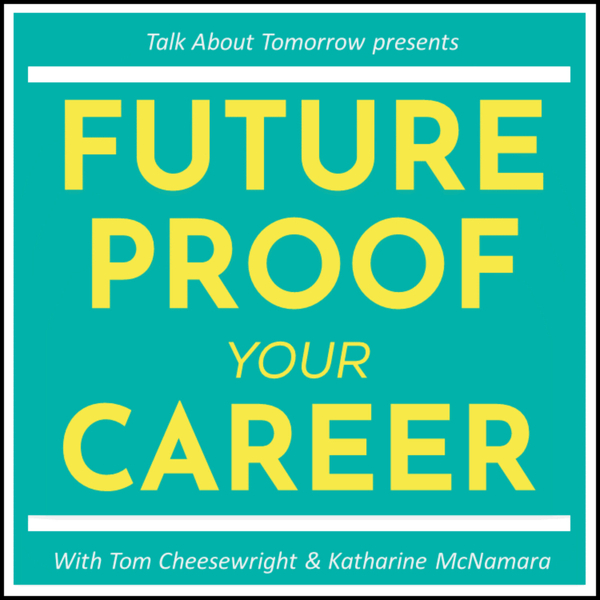
Thanks for listening to this first episode of our new season of Talk About Tomorrow, focused exclusively on how you can Future-proof Your Career! After each episode I’ll be collecting my notes from our guest here.
In this episode we spoke to Chris Warburton, award-winning BBC journalist. radio presenter and host of a series of excellent podcasts including Ecstasy: The Battle of Rave, Beyond Reasonable Doubt, The End of Days, and most recently, Bugzy Malone’s Grandest Game, about Rockstar Games and Grand Theft Auto.
Chris covers a huge range of topics for the BBC, from major sporting events, to politics, to once even a live heart transplant. So he was the ideal person to talk to us about how you ask good questions.
Here are my key takeaways from the conversation:
Create a personal editorial policy
Think about how your own behaviour and presentation when you’re asking questions. Do you maximise the chance of getting the right answers? For example, think about:
- What tone should I be using?
- Do I have the right level of formality or informality?
- Am I using the right language to ask questions? E.g. jargon?
Prepare in advance
Do your research. You might not be an expert in the subject - that’s why you’re the one asking the questions! But you need to know enough to shape your questions appropriately and ensure that you’re asking the most important ones. Think about the audience for the answers too: are you asking these questions on someone else’s behalf, and if so, are you getting the answers that they need and in a format they can understand?
Have a game plan
Don’t just think about your questions, think about the answers that you might get from the person you are speaking to. How will you respond to those answers? What is your follow-up?
Switch modes - the ‘red light moment’
Chris talked about the difference between the off-air conversation and the on-air conversation - when the red light goes on to tell everyone that the mics are live and that you are broadcasting. Before the red light goes on, you might be putting the other person at ease, asking them social questions and building rapport. Once the light goes on, it’s about getting answers. Think about this in your conversations. It’s fine to switch modes between the social chit-chat and the important business. But think about the transition. And just because the red light is on, it doesn’t mean anything goes. You can be forceful but you want to be able to end the conversation on good terms.
Listen and take notes
Take notes of the other person’s answers throughout the conversation. It shows you’re listening, ensures you capture the answers properly, and helps you to structure the rest of the conversation. You can always refer back to them if you want to explore a particular answer in more depth, even if it was much earlier in the conversation.
Use open and closed questions
Open questions allow the interviewee to return long form answers that might be packed with information but that might be vague. Follow these up with closed questions that have a fixed range of answers to lock down critical details. For example, an open question might be “Tell me what you want to achieve with this project?” whereas a closed question would be “What is your budget for this?”
Useful reading:
https://hbr.org/2018/05/the-surprising-power-of-questions
https://www.psychologytoday.com/gb/blog/how-to-do-life/202102/the-art-of-asking-questions
Future-Proof Your Career
Welcome to Future-proof Your Career, your guide to the most important skills for a long, successful working life. This is a special season of the Talk About Tomorrow podcast, exploring in depth the idea of the Three Cs, three skill groups that are critical to success, in a business or as an entrepreneur. The ability to curate information, create new things, and communicate ideas. In each episode we explore a facet of one of these skills, alongside a guest.
My name is Tom Cheesewright, I’m an applied futurist advising organisations around the globe on how to see and prepare for the future. Alongside me is my co-host Katharine McNamara, communications expert extraordinaire.